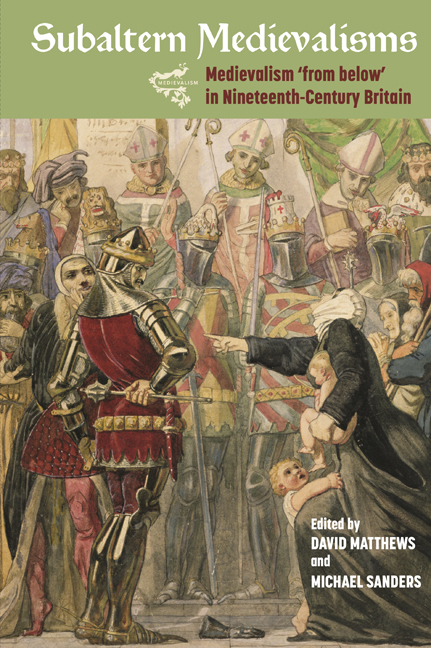Book contents
10 - Finding the Present in the Past: Suffrage Medievalism in the Pages of Votes for Women
Published online by Cambridge University Press: 09 February 2021
Summary
AMONG THE MULTIPLE suffrage groups devoted to securing votes for women formed in the early years of the twentieth century the most militant and most vocal was arguably the Women's Social and Political Union (WSPU) founded in Manchester in 1903 under the leadership of Emmeline Pankhurst, who was later joined by her daughter Christabel, and colleagues Emmeline Pethick Lawrence and Frederick Pethick Lawrence. The clarion voice of the WSPU was broadcast weekly in its newspaper Votes for Women, published on Fridays from 1907 to 1914.
In its early incarnation the WSPU's militancy appeared in the form of attending and disrupting political meetings in which women had no part or voice, then in stone-throwing at plate glass windows of large department stores and at the automobiles of rich men of business and politicians. As a matter of policy WSPU militancy was always aimed at property, never at people. Militant suffragists were willing, however, to put their own bodies in harm's way as a matter of principle. Inevitably, militant suffrage protests resulted in arrest and imprisonment to which women responded by various strategies of resistance, including hunger-striking, starting in 1909. This refusal to eat in turn provoked the cruel response of forcible feeding, essentially a kind of torture cloaked in concern for women's health. Forcible feeding involved the involuntary ingestion of ‘food’ poured down a woman's throat into her stomach by a tube, while she was restrained by three or four wardresses, with a metal gag to prevent voluntary vomiting. The process was administered and overseen by doctors authorised by the government. Neither the government nor the militant suffrage movement achieved ‘victory’ in this struggle in which the banner of God's will was carried by suffragettes and that of the proper defence of law and order by the government.
Over the course of the six or seven years of suffrage militancy, Votes for Women, edited jointly by Emmeline Pethick Lawrence and her husband Frederick, recorded and valorised the WSPU struggle in editorials, feature articles and cartoons focused on the moral, political and spiritual rightness of the suffrage cause.
- Type
- Chapter
- Information
- Subaltern MedievalismsMedievalism 'from below' in Nineteenth-Century Britain, pp. 175 - 192Publisher: Boydell & BrewerPrint publication year: 2021



